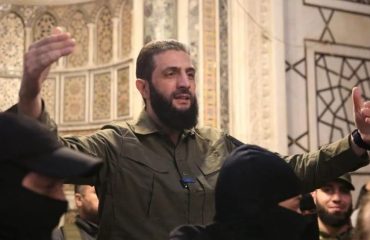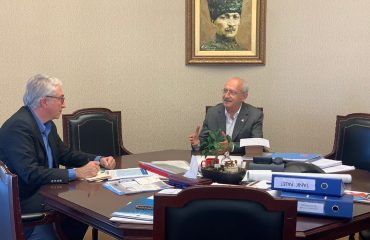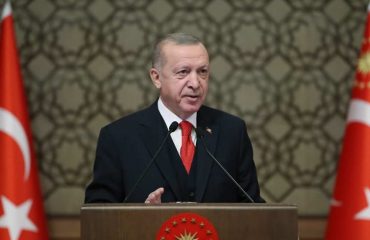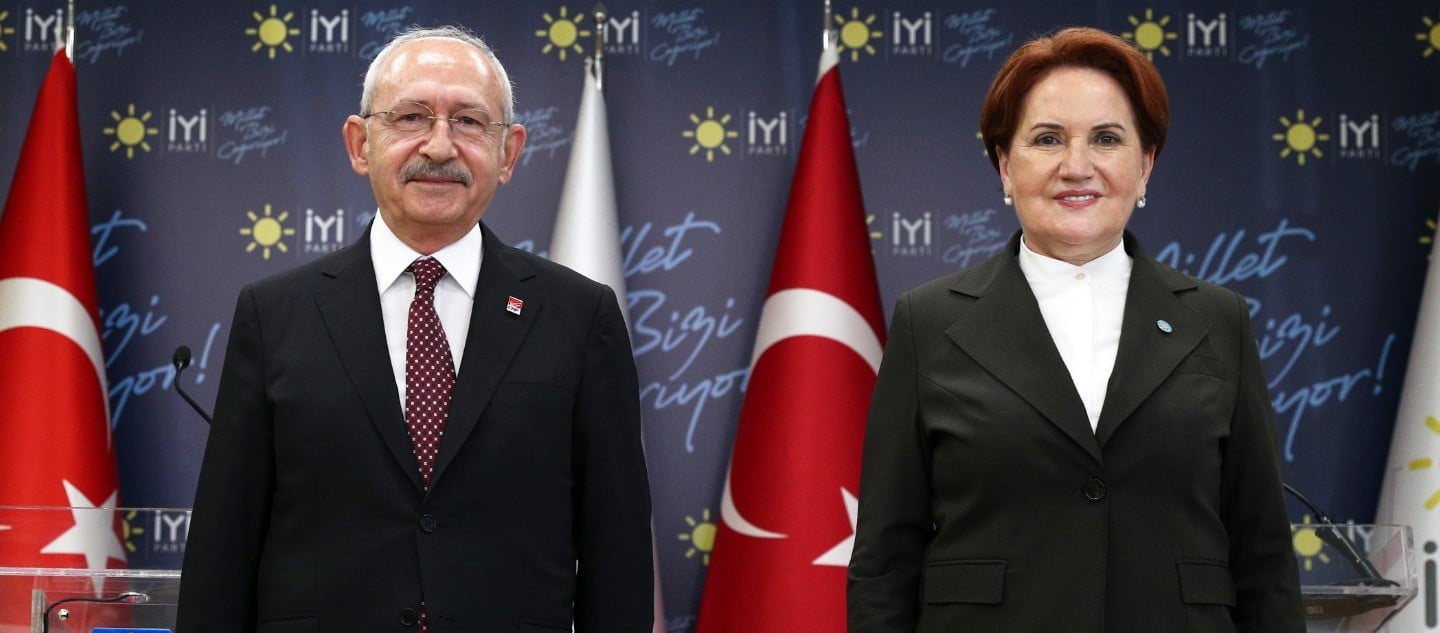
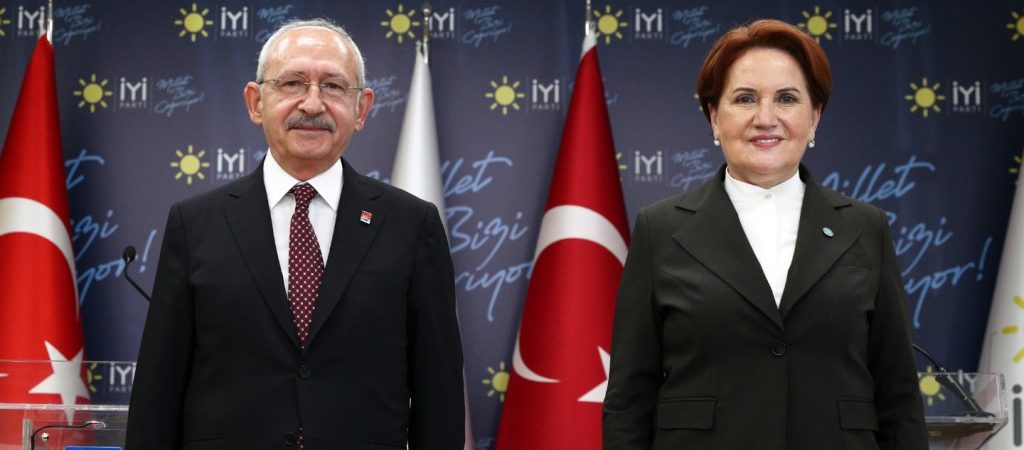
Republican People’s Party (CHP) leader Kemal Kılıçdaroğlu appeared last week on Global TV, with host Buket Aydın, who had ironically laughed during an interview on Kanal D, another private broadcaster, in 2019 when the main opposition leader claimed that his party would win the mayor seats in major big cities. The CHP actually won the big cities in the 2019 local elections with one expectation on Kılıçdaroğlu’s list.
Kılıçdaroğlu began the program by mocking the host. And when Aydın asked him if he would run for the presidency in 2023, Kılıçdaroğlu gently asked her to laugh again, saying that her laughter was a charm for his party. The CHP leader said he would run for the top seat if there is consensus in the Nation’s Alliance – an election alliance mainly consist of his party and İYİ Party.
Kılıçdaorğlu’s answer was an indicator that his and the opposition’s self-confidence passed a threshold. It was also a response to a popular claim that the opposition in Turkey is “ineffective.”
This claim that President Erdoğan would lose in elections if there was an effective opposition is wrong first of all because it downgrades the political power of Erdoğan and his ruling Justice and Development Party (AKP).
Erdoğan himself frequently says that he is the one who wants a strong opposition the most. We will look at whether if this is his sincere thought or is it a move targeting the perception of the voters just to build unconfidence in the opposition parties.
But first, let’s give an ear to backstage information from the AKP.
The AKP hopes that the now-small Democratic Left Party (DSP) will join their People’s Alliance. A visit by DSP leader Önder Aksakal to President Erdoğan on Dec. 30, 2020, and the fact that the party’s former leader Masum Türker has been appearing on pro-government media support this claim. Probably those who encourage such a move hope that this would lead to separations from the CHP. This should be the latest episode in promoting divisions in the opposition via media. The AK Party would not have used such tactics during its rising period.
The economic conditions in the country are getting harder, the government seems to be losing the grip of the pandemic and to be honest, the opposition is playing tough.
Is the opposition really ineffective?
The perception that the opposition is doing nothing does not only belong to the AKP circles but also the influential opinion leaders in the digital and social media. They ask why the CHP and the İYİ Party aren’t presenting an effective opposition and the question reads as why aren’t they calling on the people to the streets. The purpose of the government circles is obvious, they want to keep a discourse of coup threat through uprising handy.
Besides, it is clear that the police and gendarmerie have dispersed even the smallest oppositional demonstration with disproportionate use of force since the 2013 Gezi Park protests. Kemal Kılıçdaroğlu and Meral Akşenen are right in not wanting to expose the crowds to such a risk.
So what is the opposition doing?
• Minimum wage: To be honest, in the last few years, the initiative in determining the minimum wage has shifted from the government to the opposition, especially since the CHP took the metropolitan municipalities, particularly Istanbul and Ankara, from the AKP in 2019. The government is trying to catch up with the figures demanded by the CHP and İYİ Party, and the CHP municipalities, as they promised, apply their own minimum wages above what the government offers. This situation sets an example in the eyes of millions of employees.
• Municipalities: Despite the AKP and MHP’s efforts to prevent them in the municipal councils, the CHP municipalities stand out with remarkable administration differences. Transparency comes first. As a result of the live broadcasting of the tenders, both the tender prices of purchases started to fall and the allegations of favoritism started to decrease. Due to the exemplary practices, the appreciation rates of Mansur Yavaş in Ankara and Ekrem İmamoğlu in Istanbul have caught President Erdoğan. This is the first time since the AKP came to power in 2002.
“Where’s the $128 billion?”
• Pressure on fiscal policy: The CHP, İYİ Party, Deva Party leader Ali Babacan and Future Party Leader Ahmet Davutoglu have been asking how the government spent $128 billion in reserves in a bid to artificially keep the interest and the value of the dollar low. It is said that Erdoğan’s decision remove Central Bank Gov. Naci Ağbal from his seat only four and a half months after he was appointed because he wanted to inspect the issue on insistence by the opposition. The CHP informs the public about the issue with posters in all cities.
• Supporting the producers: The government announced on April 9 that the producer will buy the remaining potato, onion and rice in the hands of the producers and distribute it to the needy. This was an issue that was brought up by the CHP and IYI Party persistently for months, and therefore the AKP organizations were under the pressure of the producers. This can set an example for other agricultural products.
• Multiple salary earners: In the period when unemployment increases, the fact that some figures in the AKP government earn a very high monthly income by getting multiple salaries. The opposition parties are constantly bringing this issue to the agenda.
Istanbul Convention, Kanal Istanbul, HDP
• Admirals declaration: The statement issued by retired admirals on the Montreux Convention about the rights on the Istanbul and Ankara straits, along with the principles of Turkey’s founding father Atatürk, has been deemed by the AKP and its election ally Nationalist Movement Party (MHP) a “call for a coup”. However, the opposition condemned the method but said it was a part of freedom of expression. So the escalation of the covid-19 pandemic and the economy became the agenda again.
• Istanbul Convention: President Erdoğan had previously brought up the Monteux Convention issue within the scope of the Kanal Istanbul, e giant plan to build an artificial waterway in Istanbul’s northwest to connect the Black Sea and the inner Marmara Sea. This time it came to the agenda with Turkey’s retreat from the Istanbul Convention that introduces measures to prevent violence against women. The debate on women’s rights and gender heated up, especially with Akşener.
• Case to close the HDP: A lawsuit has been launched to shut down Kurdish issue-focused Peoples’ Democratic Party upon assistance by MHP leader Devlet Bahçeli. But the opposition did not fall into a trap this time. And even some oppositional voices have been heard from within the AKP against closing political parties. The Constitutional Court rejected the indictment.
Face-to-face contact with the public
Akşener especially collects credits due to her personal contact with the public. Her visits to tradesmen are also widely featured on social media. In addition, Babacan and Davutoğlu are on the streets at places where the CHP is not very influential. The AKP’s preference for organizations such as congresses and promotions rather than face-to-face contact with the masses changes the roles in politics. Moreover, all these come at a time when not only the critical and opposition press, but also opposition politicians face charges of terrorism, espionage, or threats of being tried, stripped off the lawmaker status, imprisonment, and physical attack.
The opposition is also producing new political actors in this process. CHP Istanbul provincial chair Canan Kaftancıoğlu in the field and İYİ Party Isparta Deputy Aylin Cesur in parliament are good examples of that.
Kılıçdaroğlu, who faced several physical attacks, holds face-to-face meetings with civil society, professional organizations and pressure groups that the CHP did not have access to before. The opportunities that emerged after the 2019 local elections also play a role here.
Looking at this picture, the discourse that there isn’t an effective opposition in Turkey is not true and it only serves to discredit the effort of the opposition.
